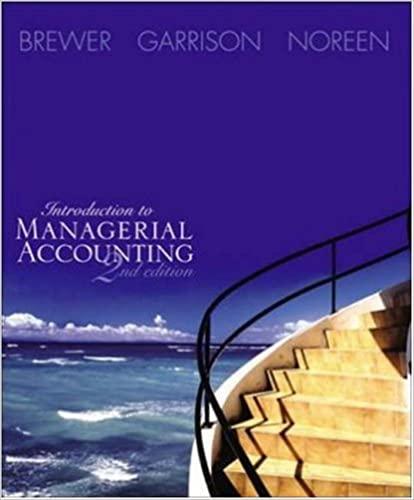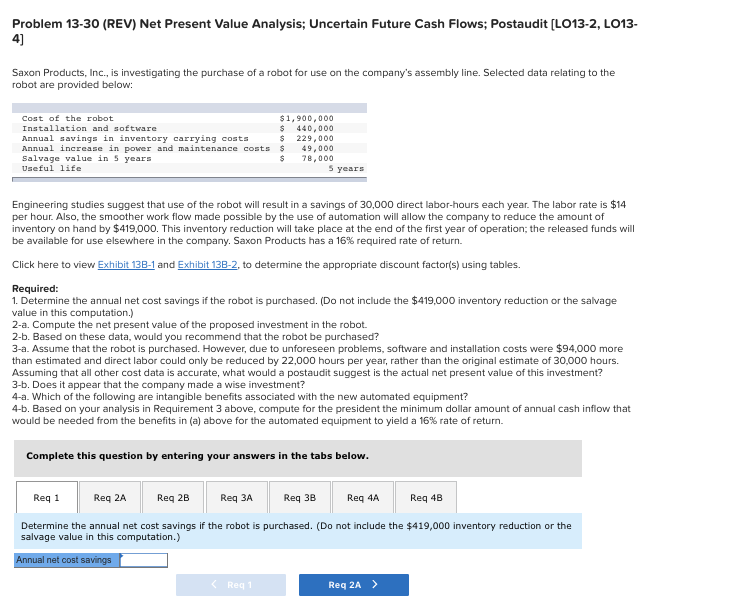

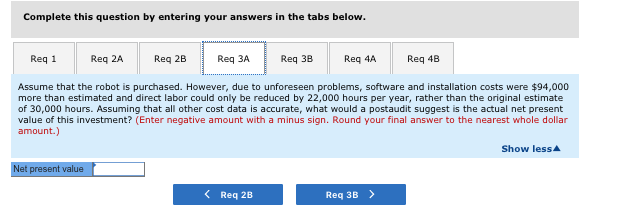
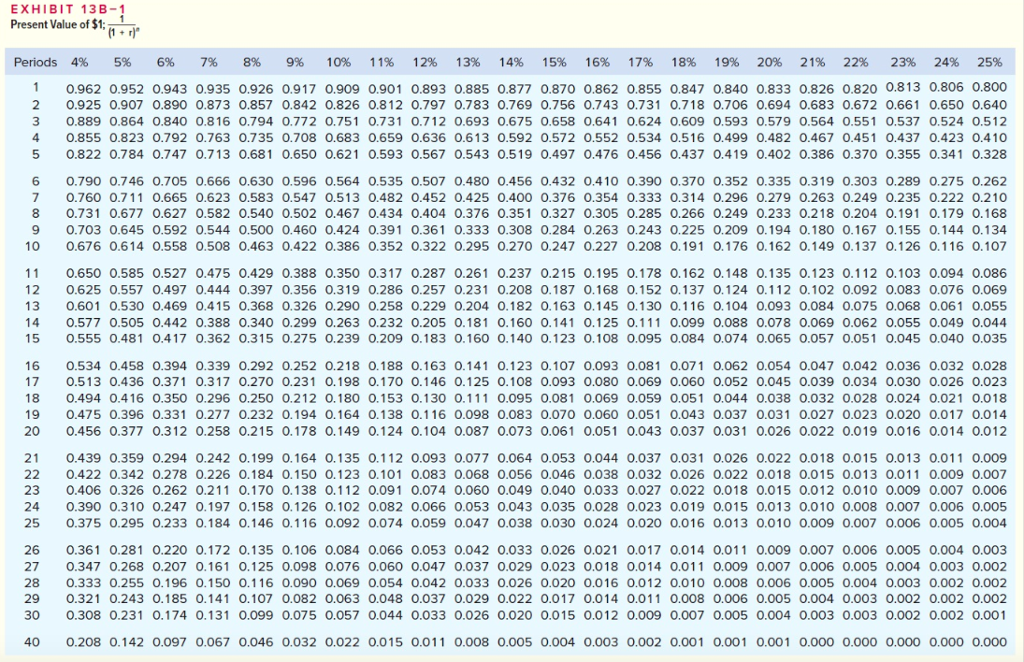
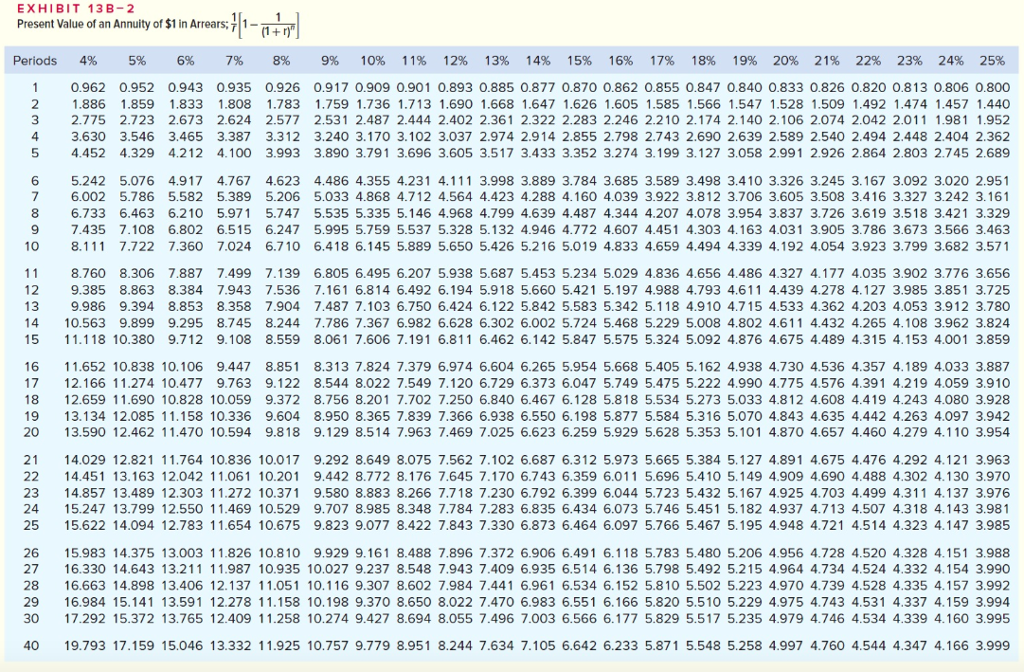
Problem 13-30 (REV) Net Present Value Analysis; Uncertain Future Cash Flows; Postaudit [LO13-2, LO13- 4] Saxon Products, Inc., is investigating the purchase of a robot for use on the company's assembly line. Selected data relating to the robot are provided below: Cost of the robot Installation and software Annual savings in inventory carrying costs Annual increase in power and maintenance costs Salvage value in 5 years Useful life $1,900,000 $440,000 $ 229,000 49,000 $ 78,000 years Engineering studies suggest that use of the robot will result in a savings of 30,000 direct labor-hours each year. The labor rate is $14 per hour. Also, the smoother work flow made possible by the use of automation will allow the company to reduce the amount of inventory on hand by $419,000. This inventory reduction will take place at the end of the first year of operation; the released funds will be available for use elsewhere in the company. Saxon Products has a 16% required rate of return. Click here to view Exhibit 13B-1 and Exhibit 13B-2, to determine the appropriate discount factors) using tables. Required: 1. Determine the annual net cost savings if the robot is purchased. (Do not include the $419,000 inventory reduction or the salvage value in this computation.) 2-a. Compute the net present value of the proposed investment in the robot 2-b. Based on these data, would you recommend that the robot be purchased? 3-a. Assume that the robot is purchased. However, due to unforeseen problems, software and installation costs were $94,000 more than estimated and direct labor could only be reduced by 22,000 hours per year, rather than the original estimate of 30,000 hours. Assuming that all other cost data is accurate, what would a postaudit suggest is the actual net present value of this investment? 3-b. Does it appear that the company made a wise investment? 4-a. Which of the following are intangible benefits associated with the new automated equipment? 4-b. Based on your analysis in Requirement 3 above, compute for the president the minimum dollar amount of annual cash inflow that would be needed from the benefits in (a) above for the automated equipment to yield a 16% rate of return. Complete this question by entering your answers in the tabs below Req 1 Req 2A Req 2B Req 3A Req 3B Req 4A Req 4B Determine the annual net cost savings if the robot is purchased. (Do not include the $419,000 inventory reduction or the salvage value in this computation.) Complete this question by entering your answers in the tabs below. Req 1 Req 2A Req 2B Req 3A Req 3BReq 4AReq 4B Compute the net present value of the proposed investment in the robot. (Round your final answer to the nearest whole dollar amount.) Net present value Req 1 Complete this question by entering your answers in the tabs below. Req 1q Req 2Req 3A Req 3BReq 4AReq 48 Assume that the robot is purchased. However, due to unforeseen problems, software and installation costs were $94,000 more than estimated and direct labor could only be reduced by 22,000 hours per year, rather than the original estimate of 30,000 hours. Assuming that all other cost data is accurate, what would a postaudit suggest is the actual net present value of this investment? (Enter negative amount with a minus sign. Round your final answer to the nearest whole dollar amount.) Show lessa Net present value Req 2B Req 3B>











